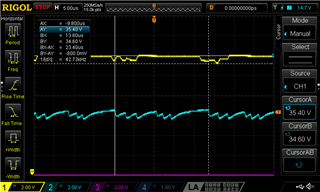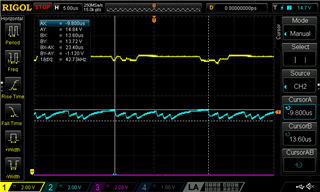Other Parts Discussed in Thread: LM5008A
Tool/software:
Hello,
We are experiencing issues with gate drive on our new board design using DRV8353RSRGZR. The board consist of DRV used in dual supply topology, so for VM we use internal LM5008A adjusted for 16.4V output and 6s-12s battery as a main input. Total bulk capacity on main supply is 600uF. Current rating of the device is up to 120A. Instead of 5R6 we have 0R jumpers placed on all gates.
Schematic around DRV: 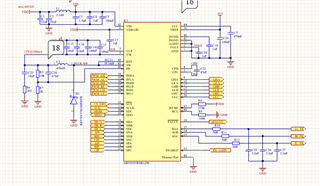
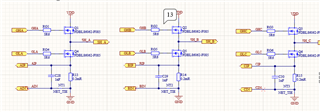
The first issue is that the rise/fall time of gate voltages in real do not correspond with the calculated values according datasheet. Used output MOSFET is FDBL86062-F085 with Qtot=95nC and Qgd=20nC, for which ideal IDRIVE settings should be ~200mA source and ~400mA sink.
In real measurements we had to go much higher to reach some acceptable values of rise/fall time:
IDRIVEP_LS = 300mA > ~380ns
IDRIVEN_LS = 700mA > ~240ns
IDRIVEP_HS = 650mA > ~640ns
IDRIVEN_HS = 700mA > ~180ns
DEADTIME= 100ns
TDRIVE= 2000ns
VDS_LVL= 1V
SEN_LVL = 0.25V
Overview of one of the phases with applied settings above and it`s gate voltage curves, using motor without load: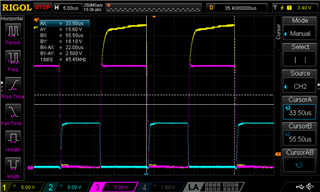
Voltage curves on VM16.4V (yellow), VGLS(cyan), VCP(purple), using motor without load:
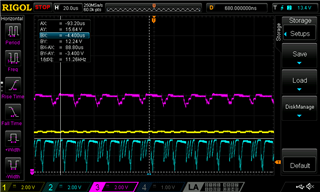
VGLS and VCP voltages seems very noisy. We tried also add more capacitance on VM (+44uF directly on VM pin), and although VM voltage were smoother, it didn't help with the transients on VGLS/VCP and neither on the gate voltages.
The second issue, which most likely relates with the first one, is that during power tests with higher load of motor, DRV reports errors and after few tries it sometimes leads to physical damage of chip. Two situations that we catched: VGLS voltage starts to be wrong or VGS_XX error reported and different resistance measured on MOSFET gates. Errors reported usually are VDS_Hx, VDS_Lx, VGS_Lx, VDS_OCP, GDF.
Do you have a tip what could be the reason of this behavior ?
Thanks in advance.



